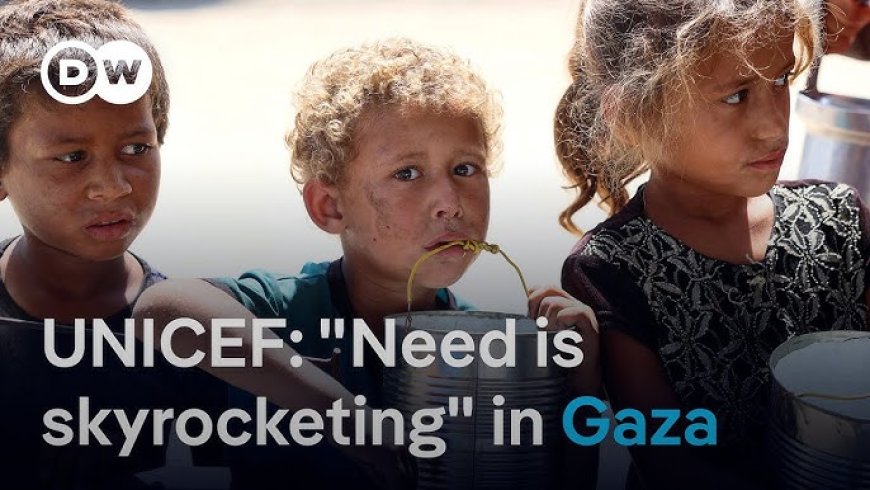UNICEF: Over 50,000 Children in Gaza Facing Severe Malnutrition, Life-Threatening Health Crisis Unfolds
The United Nations Children’s Fund (UNICEF) has raised an urgent alarm, reporting that over 50,000 children in Gaza are suffering from severe malnutrition. This critical health crisis is compounding the already dire humanitarian conditions in the region, which has been devastated by prolonged conflict and a collapsing health infrastructure.

The United Nations Children’s Fund (UNICEF) has raised an urgent alarm, reporting that over 50,000 children in Gaza are suffering from severe malnutrition. This critical health crisis is compounding the already dire humanitarian conditions in the region, which has been devastated by prolonged conflict and a collapsing health infrastructure.
Victor Aguayo, head of UNICEF's nutrition program, highlighted the severity of the situation, stressing that these children urgently require immediate treatment. "Children in Gaza are not receiving the nutrients essential for their growth and survival. Malnutrition is threatening their lives, and swift, coordinated action is needed to prevent a worsening disaster," Aguayo stated.
UNICEF’s latest reports reveal that an overwhelming 90% of children in Gaza do not have access to the necessary vitamins and minerals crucial for healthy development. The widespread malnutrition among children, as well as pregnant and lactating women, is an alarming indicator of the deteriorating health conditions in the region. This crisis is exacerbating the vulnerability of these groups, with long-term consequences likely if no intervention is made.
Malnutrition Exacerbated by Ongoing Conflict
The health crisis in Gaza is not solely a result of food shortages; it has been aggravated by ongoing conflict, limited access to essential healthcare, and widespread destruction of infrastructure. Israel’s military operations over the past 11 months have crippled Gaza's ability to provide basic services, and humanitarian organizations are struggling to deliver much-needed aid due to blockades and damaged transportation routes.
UNICEF has noted that the devastation extends beyond nutrition. Many children are also at risk of contracting preventable diseases such as polio. Last week, UNICEF described its polio vaccination campaign in Gaza as one of the most "dangerous and challenging" in the world. Although there was a temporary ceasefire to facilitate the delivery of vaccines, the campaign is fraught with difficulties, including damaged roads, destroyed healthcare facilities, displacement of populations, looting, and disruption of essential supply chains.
Gaza: The Most Dangerous Place to Be a Child
UNICEF has repeatedly called attention to Gaza’s status as one of the most perilous environments for children. The continuous war, which has ravaged the region for nearly a year, has left children not only physically malnourished but also psychologically traumatized. The destruction of homes, schools, and hospitals, combined with the lack of safe spaces for children to play or learn, has created a generation at risk of being permanently scarred by the violence.
Despite international efforts, humanitarian access remains highly restricted. "Delivering vaccines or food aid is no longer just a logistical challenge—it’s a battle against time and circumstances. The international community must act now to ensure these children are not left to die in silence," a UNICEF spokesperson emphasized.













































